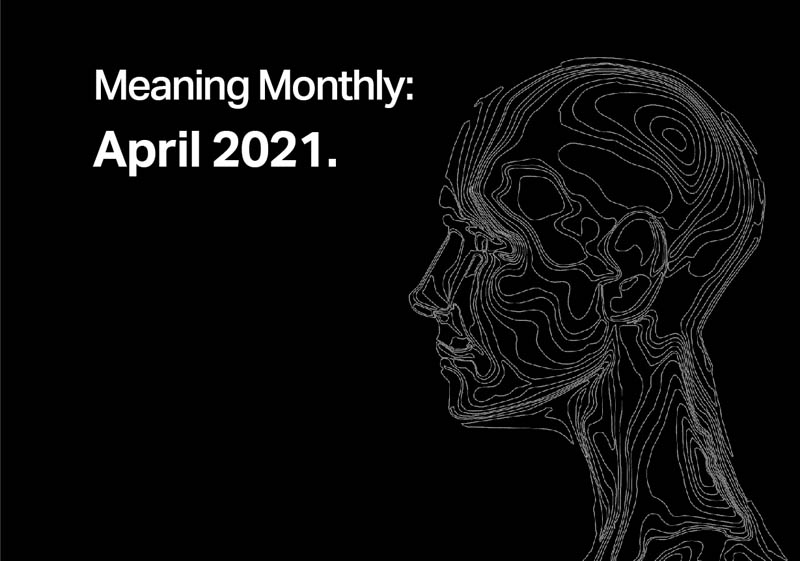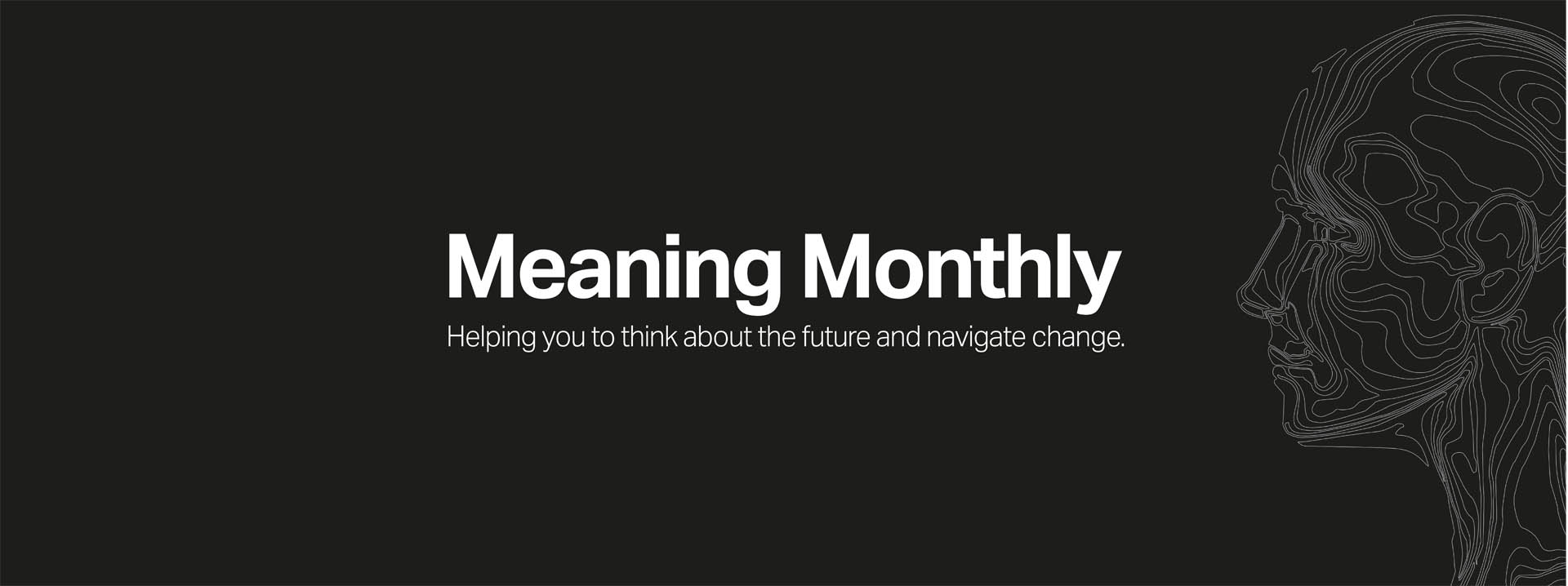
May 2021
This month at Recipe, we have been examining some of the new products and services delivering remote healthcare solutions and writing about connected fitness, empathetic AI and the evolving CBD market.
We also shared some news about our ongoing partnership with MyGlobalHome, looking at digital healthcare solutions in the home.

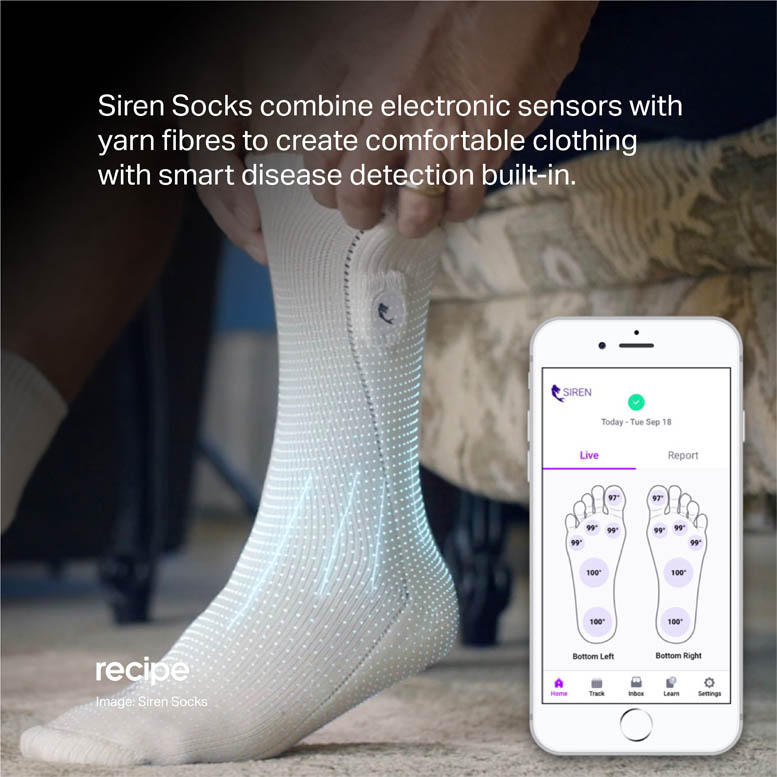
The integration of electronic sensors and monitors in textiles is enabling a new category of smart clothing to evolve. Comfortable, seamless and unrecognisable as a medical device, smart textiles enable disease monitoring equipment to be worn in discreet ways that prioritise the patient experience.
Siren has developed socks which offer continuous, real-time temperature monitoring of 6 key areas of the foot, providing patients and HCPs with the information they need to help identify signs of inflammation or injury. For people with diabetes, early intervention is critical in preventing the progression of ulcers. Siren Socks are able to detect temperature rises that often go undetected by the patient themselves due to the nature of neuropathy, providing much needed confidence and reassurance.
As smart textile technology develops, the range of biometrics and biomarkers they can detect will increase, leading to exciting new opportunities for clothing that helps us take care of our health.
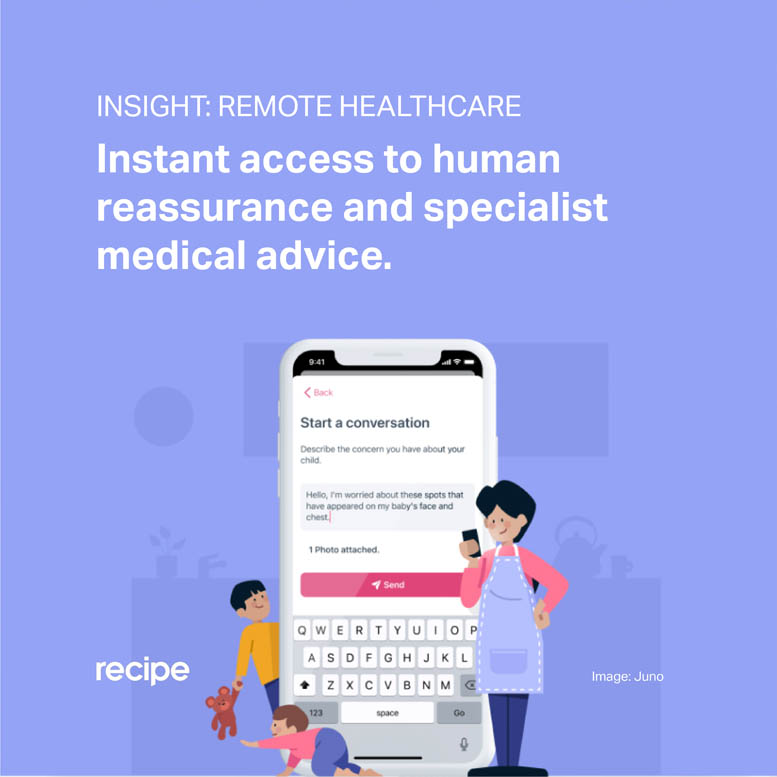
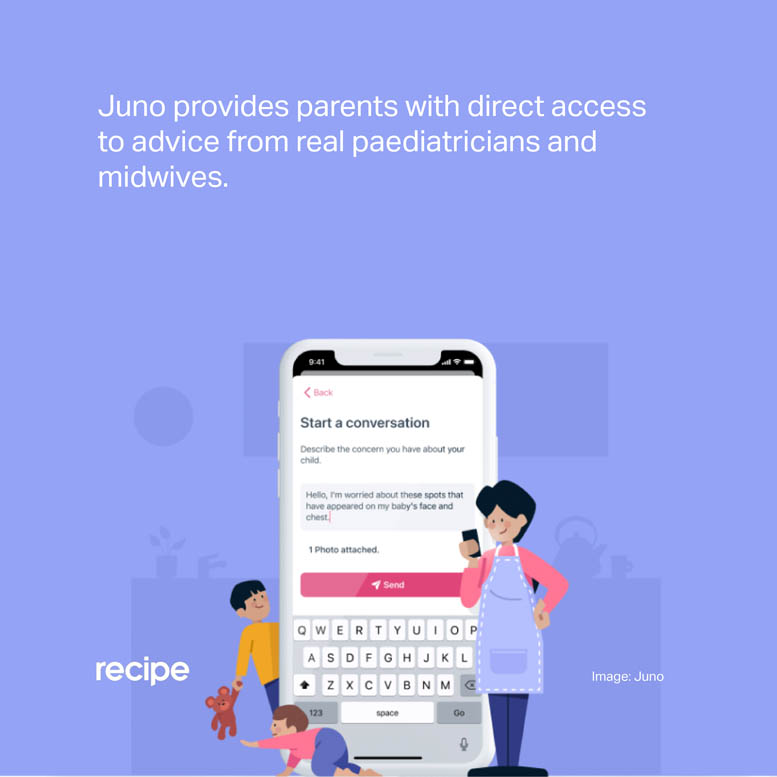
Many digital healthcare tools utilise automated messaging or AI chatbots to provide advice and diagnose symptoms. But sometimes, people need more human interaction for comfort and confidence in more urgent or sensitive situations.
Juno provides parents with direct access to advice from real paediatricians and midwives. ‘Ready to reassure and committed to care’, Juno emphasises that no concern is too small to check and looks to alleviate any worry parents have about their child’s health. It enables direct chats with specialist healthcare professionals, facilitating the sharing of images for fast, accurate diagnosis.
In the isolation of the COVID-19 pandemic, new parents have been unable to see their families, friends and support networks. Meaning they are without the usual collective social wisdom; the village needed to raise their child. Apps like Juno which address these concerns intelligently and empathetically provide more meaningful healthcare solutions that address the layers of human human need.
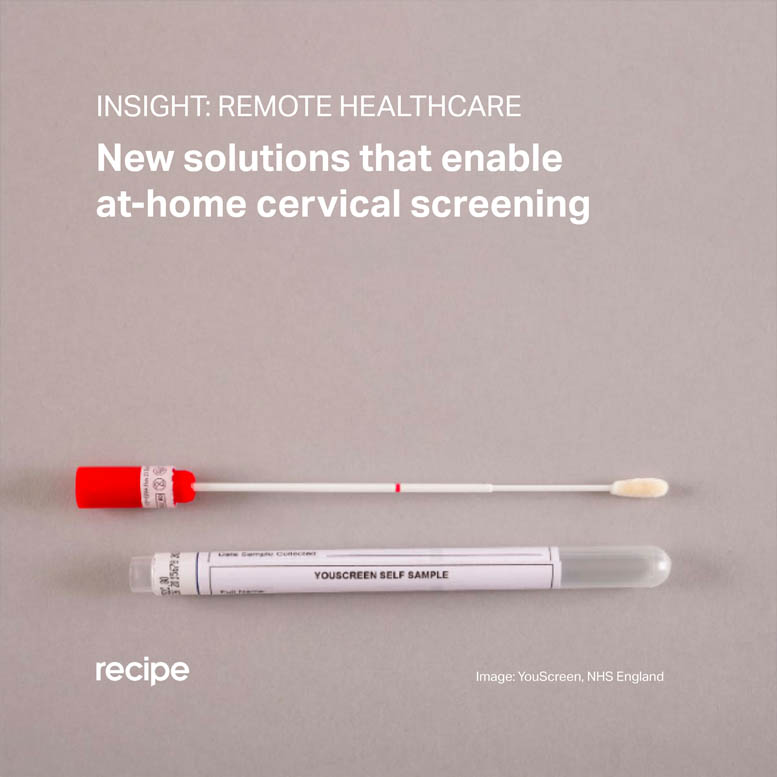
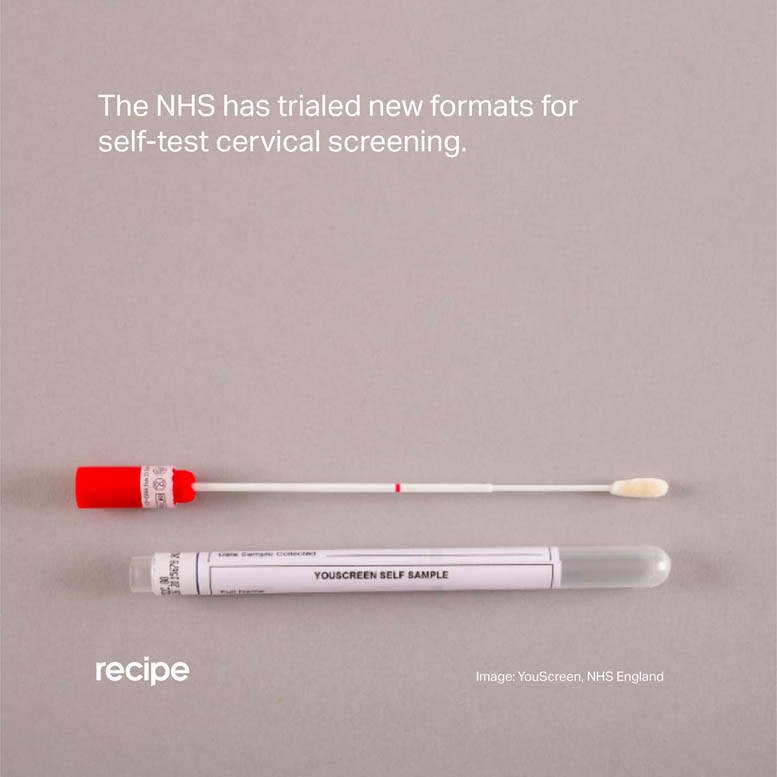
The COVID-19 pandemic has accelerated the need for and acceptance of at-home medical testing for many conditions out of necessity. In the case of cervical screening, a medical assessment which some find particularly uncomfortable, at-home screening provides a more personal and private means for staying healthy.
This year, NHS England offered at-home smear tests to more than 31,000 women in London as part of the YouScreen trial. Described as a ‘game-changer’, this method of self-sampling hopes to reach women who do not attend regular screenings and are at the highest risk of developing cervical cancer.
As people grow more familiar and practiced with the rhetoric of self-screening, the design language for at-home testing will evolve in turn. Products and services will diversify, moving away from clinical connotations into something more suitable for the home environment, reframing the meaning of healthcare in the home and establishing new typologies and visual identities to define it.
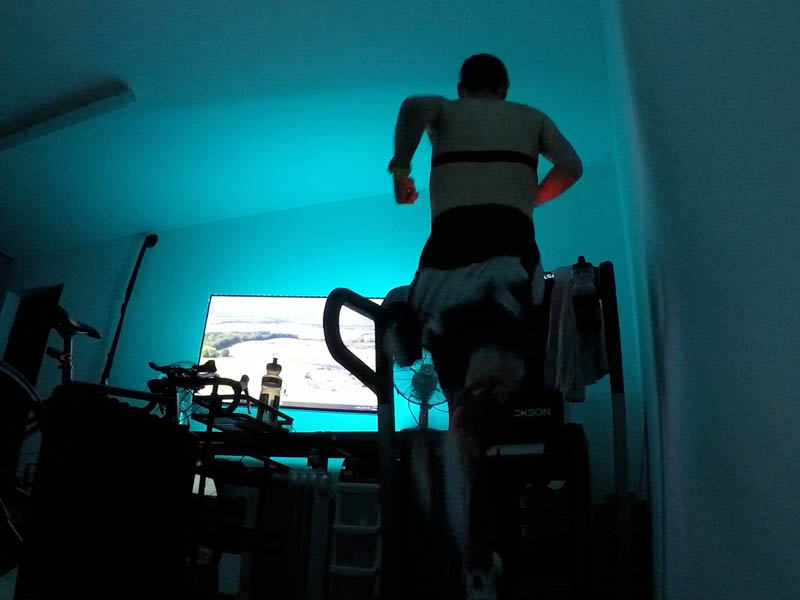
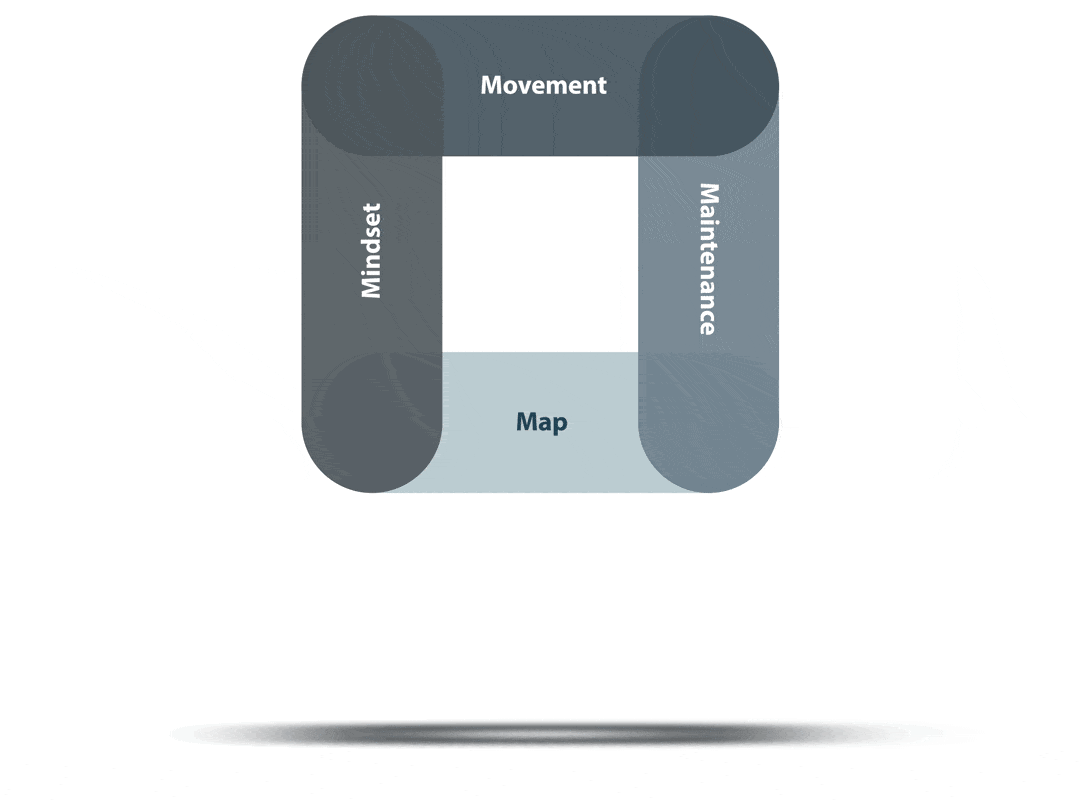
How Brands Can Conquer Connected Fitness
Lee Twycross, Senior Industrial Design Manager at Recipe, has written about the connected fitness revolution and how brands can engage with this rapidly accelerating consumer demand.⠀
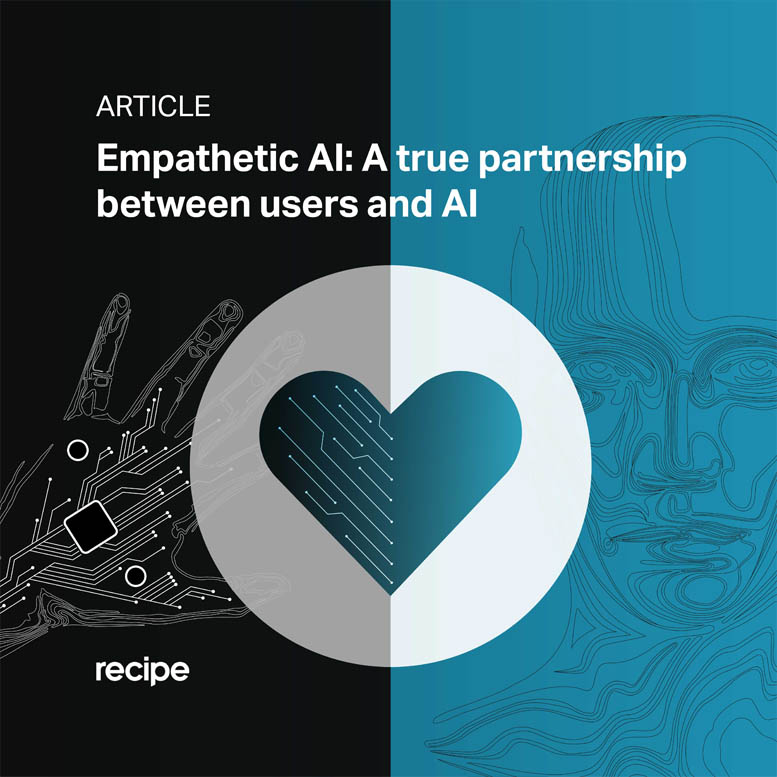
Empathetic AI: A true partnership between users and AI
Kaylene Kau, our Senior UX Designer & Strategist, has written a follow-up article in our series about Empathetic AI. This time she discusses the possibilities of creating a true partnership between people and their AI enabled technologies and what that would mean for users and companies.

Overcoming Myth and Misunderstanding in the CBD Market
Michael Wandschneider and Natasha French from our Client Services team, talk about how brands can overcome the chaos and confusion of the CBD category and its potential impact on consumer meaning and engagement.
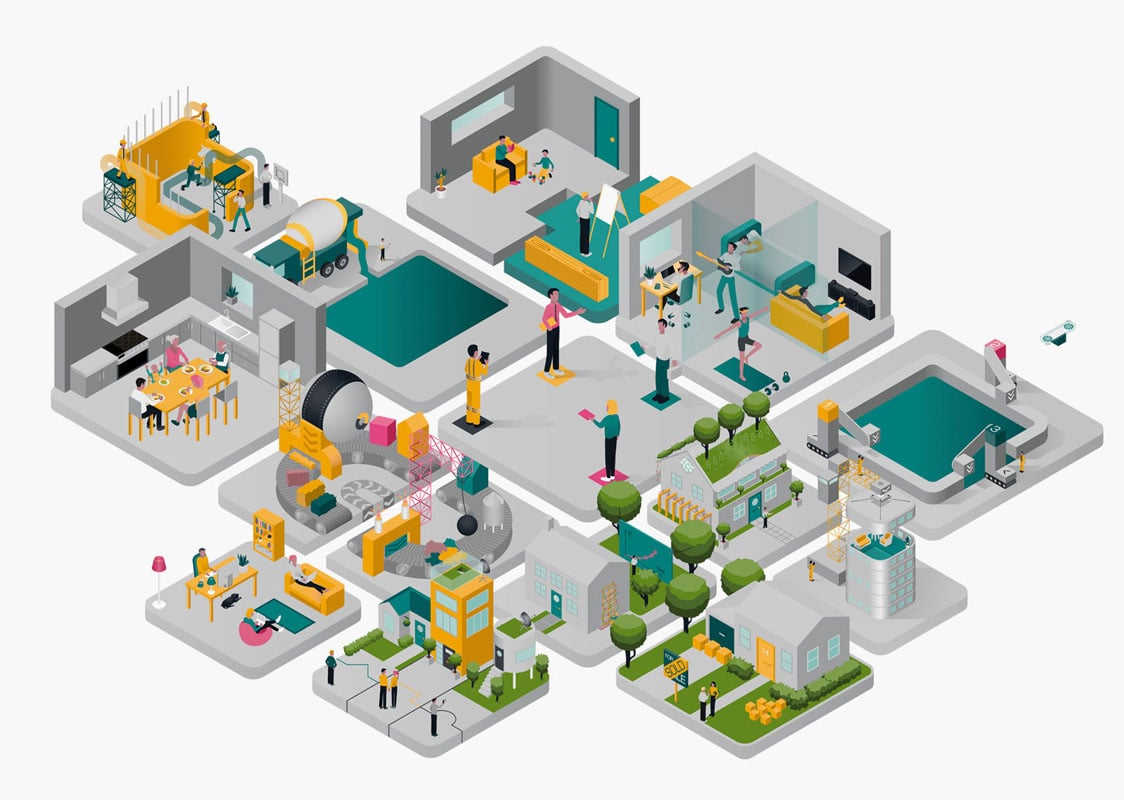
Leveraging our unique innovation process, Meaning Centred Design, our collaboration with MyGlobalHome will explore how the meaningful deployment of technology can unlock new possibilities for digital health in the home.
Previous month
April 2021
In April 2021, our strategy team examined how digital devices and robots are changing how we foster companionship. We also investigated emerging consumer behaviours and metrics, and how they are driving businesses to become more honest, transparent, and sustainable.
Meaning Centred Design Assessment
Meaning Centred Design helps your business understand how people think about, perceive and understand what you stand for and what you have to offer.
MCD Insights can be mapped and translated into new propositions with the potential to make your brand more distinctive, more engaging and ultimately more valuable.
This assessment is an interactive online tool that will help you quickly assess your current situation. It takes less than 5 minutes to compl
